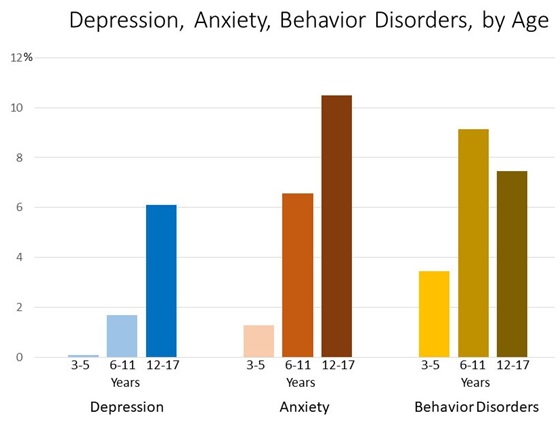The Teacher's Role In Encouraging Anxiety Screening For Students: A Comprehensive Guide
4th May 2023
Anxiety disorders are the most common mental health condition all over the world. One of the reasons anxiety disorders are often left untreated is that they can be hard to spot, especially in kids. According to the World Health Organization, it estimates that up to 15% of school-age children experience an anxiety disorder, making them among the most prevalent mental health issues affecting youth today.
That’s why organizations like U.S. Preventive Services Task Force are now recommending that all children be screened for anxiety at their regular check-ups, starting at age 8. Anxiety can manifest differently in children than in adults. Individuals of different ages show different tendencies with anxiety disorder.
Teens with anxiety or other behavioural disorder might avoid social situations or have panic attacks, while kids might act out in class, get stomach aches or headaches, or have trouble sleeping.

Source: https://www.cdc.gov/childrensmentalhealth/data.html
If you’re an experienced or aspiring teacher who has completed courses like Post Graduate Diploma in Counselling for Teachers and you’re concerned that a child might be suffering from anxiety, how you can help them? Then read further on how to detect anxiety disorder in children and how you can promote the idea of screening those students for anxiety.
School plays a huge role in detecting anxiety in students:
Schools can play a major role in the detection of childhood anxiety. Parents and teachers can all be instrumental in uncovering potential anxiety in students.
Teachers who have pursued courses like Post Graduate Diploma in Counselling for Teachers, are in a more favourable position to assess a student’s behavioural, emotional, and academic performance, which can be useful indicators of underlying anxiety. They are also trained to talk to students and help them recognize their feelings and offer strategies to cope.
Schools can also provide screening tools for guidance to teachers to use in assessing a student’s mental well-being. Teachers can prepare a list of questions that can be anonymous so that children don’t feel hesitant before answering. Questions can be related to their sleeping patterns, emotional state, mood, social life, and general well-being as well.
It is also important for teachers and parents at the same time to be aware of the warning signs of anxiety in students. These can include unreasonable fear, isolation from friends and family, physical symptoms such as headaches, an inability to sleep, or an inability to concentrate.
Recognising the symptoms and getting help early is key in treating anxiety in students. Schools should provide the necessary support to ensure students are receiving the proper care and treatment needed.
Teachers Should Encourage Screening for Anxiety
Teachers, especially those who have pursued courses like Post Graduate Diploma in Counselling for Teachers can encourage screening for anxiety to students because they have the necessary training in managing student mental health. They are educated in and possess the skills to identify and address issues that can manifest into anxiety. This enables them to provide accurate advice and support to both students and parents.
Teachers can proactively address possible causes of anxiety in the early stages of childhood. Counsellor teachers are able to act as advisors to both students and parents and to recommend therapeutic options so that students can receive help quickly before the symptoms of anxiety have a chance to manifest further.
Teachers should stress on the importance of resilience, this will build a positive learning environment, and encourage positive communication to help ensure students are emotionally healthy.
Finally, by encouraging screening for anxiety at an early age, the potential for developing mental health issues later in life can be minimized. Early screening can help to identify those at risk of mental health issues and provide them with the resources and help necessary to protect their mental health.
Teachers can make a difference in the lives of their students
Teachers play an integral role in providing guidance and necessary support to help students who are dealing with anxiety and mental health issues. Teachers who have got the proper counselling training by pursuing courses like Post Graduate Diploma in Counselling for Teachers can provide the necessary help to ensure that their students receive mental health resources, such as support groups, therapists, and medications when needed. Moreover, they can provide training on how to recognize and respond to signs of anxiety in students as well as recommend strategies for overcoming anxiety.
Written By : Abhishek